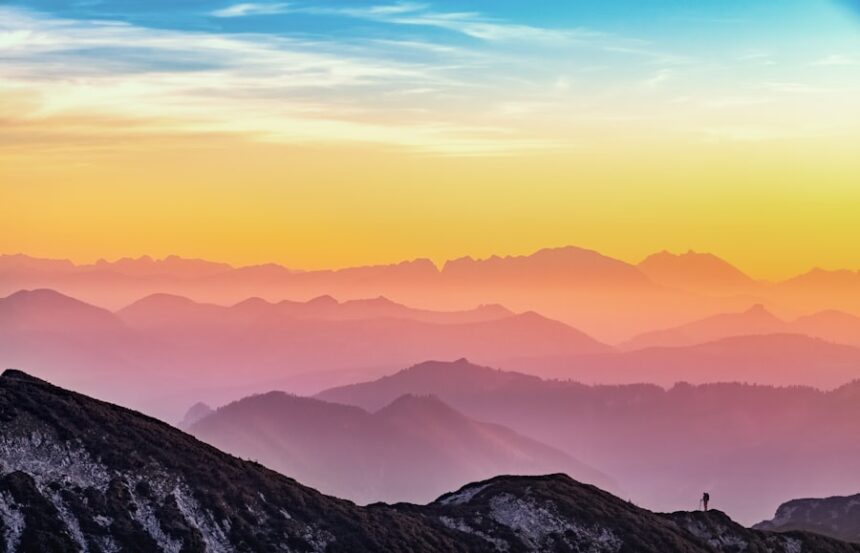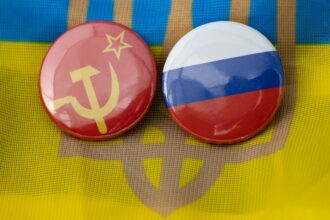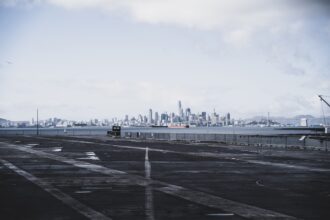Government secrets have long been a topic of intrigue and controversy, captivating the public’s imagination and raising critical questions about transparency and accountability. These secrets, often shrouded in layers of bureaucracy and classified information, can range from mundane administrative details to significant revelations that could alter the course of history. The allure of uncovering hidden truths has inspired countless investigations, documentaries, and discussions, as citizens grapple with the implications of what their governments choose to conceal.
In an age where information is more accessible than ever, the tension between national security and the public’s right to know has never been more pronounced. The existence of government secrets raises fundamental issues about trust and governance. Citizens expect their leaders to act in their best interests, yet the veil of secrecy can breed suspicion and cynicism.
As individuals become increasingly aware of the potential for deception, the demand for transparency grows stronger. This article delves into the making of a documentary that seeks to explore these themes, examining the historical context, societal impact, and ethical considerations surrounding government secrets.
Key Takeaways
- Government secrets have a long history and significant impact on society
- The documentary explores the making of the film and the interviews with whistleblowers
- The history of government secrets is complex and has ethical and legal ramifications
- The media plays a crucial role in exposing government secrets and sparking public debate
- The documentary calls for transparency and action in response to government secrecy
The Making of the Documentary
The documentary in question emerged from a desire to shed light on the often opaque world of government secrecy.
They sought to capture not only the stories of whistleblowers and journalists but also the perspectives of government officials who grapple with the complexities of national security.
The process was not without its challenges; navigating sensitive topics required a careful approach to ensure that the documentary would resonate with audiences while remaining respectful of the individuals involved. In crafting the narrative, the filmmakers employed a variety of storytelling techniques to engage viewers. They utilized archival footage, expert commentary, and personal anecdotes to create a multifaceted exploration of government secrets.
The documentary aimed to provoke thought and discussion, encouraging viewers to reflect on their own beliefs about transparency and accountability. By weaving together different perspectives, the filmmakers hoped to foster a deeper understanding of the implications of government secrecy on democracy and civil society.
The History of Government Secrets
The history of government secrets is as old as governance itself. From ancient civilizations that employed spies to gather intelligence on rival states to modern-day practices of classified information management, secrecy has been a tool wielded by those in power. Throughout history, governments have justified their need for confidentiality by citing national security concerns, often at the expense of public knowledge.
This historical context is crucial for understanding contemporary debates surrounding transparency. In the 20th century, significant events such as World War II and the Cold War further entrenched the culture of secrecy within governments. The development of nuclear weapons and espionage tactics led to an environment where information was tightly controlled.
As a result, citizens were often left in the dark about critical decisions that affected their lives. The rise of whistleblowers in this era marked a turning point, as individuals began to challenge the status quo by revealing hidden truths. This historical backdrop sets the stage for examining how government secrets have evolved and their lasting impact on society.
The Impact of Government Secrets on Society
| Impact | Details |
|---|---|
| Trust | Government secrets can erode public trust in the government and its institutions. |
| Transparency | Secrecy can hinder transparency and accountability in government actions and decision-making. |
| Civil Liberties | Government secrets may infringe on civil liberties and individual rights. |
| Public Debate | Secrecy can limit public debate and informed decision-making on important issues. |
The impact of government secrets on society is profound and multifaceted. On one hand, secrecy can be seen as a necessary component of national security; certain information must remain classified to protect citizens from potential threats. However, this same secrecy can lead to a breakdown in trust between the government and its constituents.
When citizens feel that they are being kept in the dark about important issues, it can foster a sense of alienation and disillusionment with democratic processes. Moreover, government secrets can have far-reaching consequences for social justice and human rights. When information is withheld, marginalized communities may suffer disproportionately from policies enacted without public scrutiny.
The documentary highlights instances where government actions—often justified under the guise of secrecy—have led to violations of civil liberties or exacerbated systemic inequalities. By illuminating these issues, the filmmakers aim to underscore the importance of transparency in fostering an equitable society.
Interviews with Whistleblowers
One of the most compelling aspects of the documentary is its inclusion of interviews with whistleblowers who have risked their careers and personal safety to expose government secrets. These individuals provide firsthand accounts of their experiences, shedding light on the motivations behind their decisions to come forward. Their stories reveal a common thread: a deep-seated belief in the public’s right to know and a commitment to ethical principles that transcends personal gain.
The filmmakers approached these interviews with sensitivity, recognizing the emotional toll that whistleblowing can take on individuals and their families. Many whistleblowers face significant backlash, including legal repercussions and social ostracism. By sharing their narratives, these brave individuals not only contribute to the documentary’s exploration of government secrecy but also inspire others who may be grappling with similar dilemmas.
Their courage serves as a powerful reminder that truth-telling can be an act of profound bravery in the face of overwhelming odds.
The Role of the Media in Exposing Government Secrets
The media plays a crucial role in exposing government secrets and holding those in power accountable.
The documentary highlights several landmark cases where journalists have risked their safety to bring important stories to light, such as the Pentagon Papers and Watergate scandal.
These instances underscore the media’s responsibility to inform the public and foster an informed citizenry. However, the relationship between government officials and the media is often fraught with tension. While some officials recognize the importance of transparency, others may view journalists as adversaries seeking to undermine their authority.
This dynamic can lead to attempts at censorship or disinformation campaigns aimed at discrediting credible reporting. The documentary emphasizes that a free press is essential for democracy; without it, citizens are left vulnerable to manipulation and misinformation.
The Ethical Dilemmas of Government Secrets
The ethical dilemmas surrounding government secrets are complex and multifaceted. On one hand, there is a legitimate need for confidentiality in matters related to national security; certain information must remain classified to protect citizens from harm. On the other hand, this secrecy can lead to abuses of power and violations of civil liberties.
The documentary explores these ethical tensions through interviews with ethicists, legal experts, and former government officials who grapple with these questions daily. One key ethical consideration is the balance between individual rights and collective security. When does the government’s need for secrecy outweigh an individual’s right to know?
This question becomes particularly pressing in cases where classified information pertains to human rights abuses or environmental concerns. The filmmakers aim to provoke thoughtful discussion around these dilemmas, encouraging viewers to consider where they stand on issues of transparency versus security.
The Legal Ramifications of Revealing Government Secrets
Revealing government secrets can have serious legal ramifications for whistleblowers and journalists alike. Laws such as the Espionage Act have been used to prosecute individuals who disclose classified information, often leading to lengthy legal battles and severe penalties. The documentary examines several high-profile cases where individuals faced legal repercussions for their actions, highlighting the chilling effect this can have on potential whistleblowers.
The legal landscape surrounding government secrecy is continually evolving, with ongoing debates about freedom of speech and national security interests. The filmmakers emphasize that while laws are designed to protect sensitive information, they must also be balanced against democratic principles that uphold transparency and accountability. By exploring these legal complexities, the documentary aims to inform viewers about the risks associated with revealing government secrets while advocating for reforms that protect whistleblowers.
The Reaction from Government Officials
The reaction from government officials regarding revelations about secrets can vary widely depending on political context and individual perspectives. Some officials may acknowledge the need for greater transparency and express support for whistleblowers who come forward with critical information. Others may adopt a more defensive stance, viewing such disclosures as threats to national security or institutional integrity.
The documentary captures this spectrum of reactions through interviews with current and former officials who share their insights on government secrecy. Some express regret over past decisions made in secrecy, while others defend their actions as necessary for protecting citizens. This nuanced portrayal highlights that within government institutions, there exists a range of opinions about how much information should be shared with the public.
The Documentary’s Call to Action
Ultimately, the documentary serves as a call to action for viewers to engage critically with issues surrounding government secrecy. It encourages individuals to advocate for greater transparency in their own communities and hold elected officials accountable for their actions. By fostering an informed citizenry that demands openness from its leaders, society can work towards creating a more equitable system where information is accessible rather than concealed.
The filmmakers hope that by sparking conversations about these important topics, they can inspire viewers to take an active role in promoting transparency within their own governments. Whether through grassroots activism or simply staying informed about current events, every individual has a part to play in ensuring that democracy thrives in an environment where truth is valued over secrecy.
The Importance of Transparency in Government
In conclusion, government secrets represent a complex interplay between national security interests and the public’s right to know. As explored throughout this article and reflected in the documentary, transparency is essential for fostering trust between citizens and their governments. When information is withheld or manipulated, it undermines democratic principles and erodes public confidence in institutions.
The documentary serves as both an exploration of these themes and a rallying cry for greater accountability in governance. By highlighting historical contexts, personal stories from whistleblowers, and ethical dilemmas surrounding secrecy, it underscores that transparency is not merely an ideal but a necessity for a healthy democracy. As society continues to grapple with these issues in an increasingly interconnected world, it becomes imperative for individuals to advocate for openness and challenge practices that prioritize secrecy over truth.
In the realm of uncovering government secrets, documentaries play a crucial role in bringing hidden truths to light. A related article that delves into the intricacies of government secrecy and the impact of revealing such information can be found on the website “In The War Room.” This article provides an insightful perspective on the challenges and implications of exposing classified information to the public. For more details, you can read the full article by visiting In The War Room. This resource offers a comprehensive look at the delicate balance between national security and the public’s right to know.
CHECK THIS OUT! 📽️🎞️ Hollywood’s Secret War: How the CIA Rewrote Movies
FAQs
What is the documentary about?
The documentary explores various government secrets and cover-ups, shedding light on controversial and classified information.
Who is the target audience for the documentary?
The documentary is aimed at individuals interested in government transparency, conspiracy theories, and political intrigue.
Is the documentary based on real events?
Yes, the documentary is based on real government secrets and cover-ups that have been documented and investigated over the years.
Is the documentary biased towards a particular political ideology?
The documentary aims to present a balanced and objective view of government secrets, without leaning towards any specific political ideology.
Are there any interviews with government officials or whistleblowers in the documentary?
The documentary features interviews with former government officials, whistleblowers, and experts who provide insights into the secretive world of government operations.
Is the documentary available for public viewing?
Yes, the documentary is available for public viewing through various streaming platforms and may also be screened at select theaters or events.




